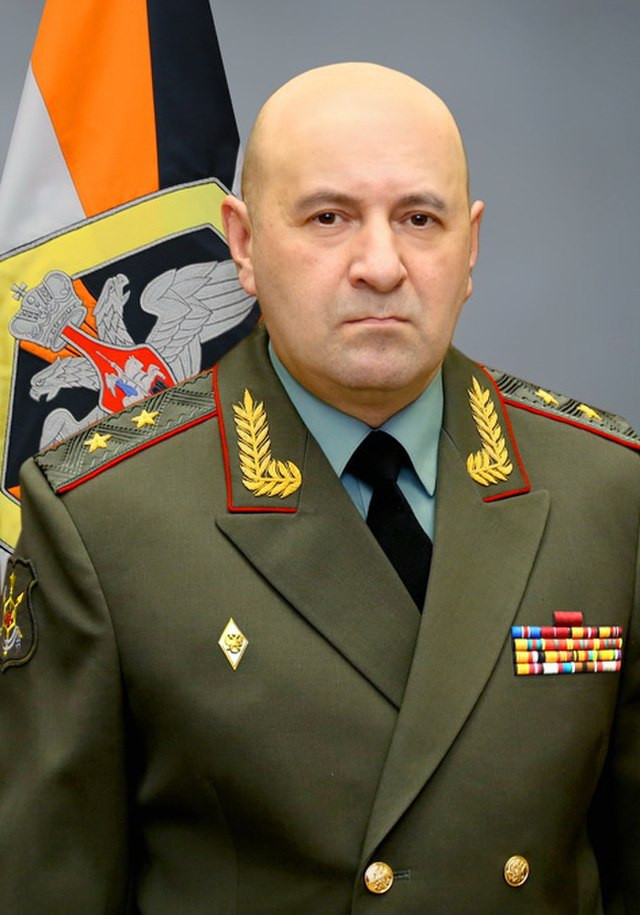A high-ranking Russian military officer, Lieutenant-General Igor Kirillov, was killed on Tuesday in a targeted bomb attack in Moscow, an incident that a Ukrainian official has claimed was orchestrated by Ukraine's Security Service (SBU). The bombing, which also killed Kirillov's aide, comes amid ongoing accusations that Russia has deployed banned chemical weapons during its war in Ukraine.
Kirillov, who headed Russia's nuclear, biological, and chemical protection forces since 2017, was killed by an explosive device concealed in an electric scooter outside his apartment building in the Russian capital. The bomb was triggered remotely, according to Russian authorities, and the blast caused significant damage to the area, shattering windows and scorching the brick exterior of the building.
The Russian Investigative Committee has launched an inquiry, officially labeling the attack as an act of terrorism. "Investigators, forensic experts, and operational services are working at the scene," said committee spokeswoman Svetlana Petrenko. "Investigative and search activities are being carried out to establish all the circumstances around this crime."
Shortly after the explosion, an official from Ukraine's Security Service, speaking anonymously to multiple outlets, confirmed the agency's involvement. "Kirillov was a war criminal and an entirely legitimate target since he gave orders to use banned chemical weapons against the Ukrainian military," the official stated. "Retribution for war crimes is inevitable."
Russia: Lieutenant General Igor Kirillov in charge of Nuclear, Biological, Chemical Defense Forces (NBC) in the Russian Armed Forces and his assistant assassinated in an explosion in Moscow on Ryazansky Prospect. pic.twitter.com/v6dQgMWEPQ — Igor Sushko (@igorsushko) December 17, 2024
The SBU's statement follows allegations that Kirillov oversaw more than 4,800 instances of chemical weapon usage since Russia's full-scale invasion of Ukraine in February 2022. The Ukrainian agency claimed that such weapons, including chloropicrin-a toxic gas initially used during World War I-have been deployed via FPV (first-person view) drones, forcing Ukrainian troops to abandon their positions and exposing them to enemy fire.
The United States and other Western nations have previously expressed concern over Russia's alleged chemical weapon use. In May, the U.S. State Department confirmed instances of chemical agents like chloropicrin being used against Ukrainian forces. The U.K. and Canada have sanctioned Kirillov for his role in these operations, labeling him a key figure in Russia's alleged war crimes.
This latest bombing marks one of several high-profile assassinations or attacks on Russian figures since the start of the conflict. Darya Dugina, the daughter of nationalist ideologue Alexander Dugin, was killed in a car bombing near Moscow in 2022, and Vladlen Tatarsky, a prominent military blogger, died in a similar explosion at a St. Petersburg event in April 2023. Both attacks were attributed to Ukrainian operatives or those acting on their behalf.
The timing of Kirillov's death is notable, occurring just one day after Ukraine's SBU announced criminal charges against him for authorizing the use of banned chemical weapons. The agency had emphasized that Kirillov's actions resulted in thousands of Ukrainian soldiers being hospitalized with chemical poisoning.
In Russia, the attack has sparked furious responses from senior officials. Dmitry Medvedev, deputy head of Russia's Security Council and a close ally of President Vladimir Putin, described the bombing as a "cowardly act" by Kyiv aimed at distracting attention from Ukraine's battlefield losses. Kyiv's "senior military-political leadership will face inevitable retribution," Medvedev warned.
The explosion in Moscow is the latest escalation in a shadow war that has extended beyond the battlefield. Ukrainian forces and intelligence agencies have increasingly targeted Russian military leaders, pro-Moscow figures, and critical infrastructure. In December, a similar bombing in the occupied Ukrainian city of Donetsk targeted Sergei Yevsyukov, a former head of a Russian-operated prison.
Russia has repeatedly denied using chemical weapons in Ukraine, instead accusing Kyiv of deploying toxic agents-claims that Ukraine and its Western allies have dismissed as baseless propaganda. Kirillov himself had been a prominent voice in advancing such accusations, frequently appearing in briefings to allege Ukrainian and U.S. plans to utilize radioactive or chemical substances.




